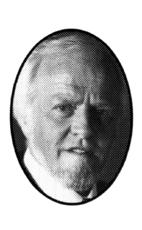Mr. Speaker, I would like to comment on what the hon. member for Yorkton-Melville said. Granted, certain aspects of Canada's social programs and health programs could be reviewed. But to do so at the expense of UI and welfare recipients is akin to blaming the present economic situation and government finance problems on the have-nots of our society, when we know full well that this is not the case. The system is allowing abuse to continue. Just this week, more cases were identified. Reference was made to tax shelters being commonplace and family trusts being tax exempt. We could also question the $12 billion Canada invested in national defence. Another very concrete example was given this week when the leader of the Reform Party asked why it was that the Governor General did not pay taxes when he is earning something in the neighbourhood of $97,000. It looks good to ask a question like that, but the same people are denouncing social programs as the cause of our current economic problems. That makes no sense. I think that Canadians should be made aware of the need to show compassion for the less fortunate. I am not saying that there is no abuse. There probably is. But, goodness gracious, let us not sacrifice what makes Canada the envy of other nations.
Just this week, we were told that the health care system in Canada represented 7 or 8 per cent of the GDP, while in the US, it was 12 to 15 per cent. It is simply not true that our system is expensive. What is true, on the other hand, is that our public debt is costing us a lot. In fact, it is too expensive and it is the ultimate reason why we apparently have to go and cut social programs. That is the easiest area to make cuts in, because it affects the less fortunate.

